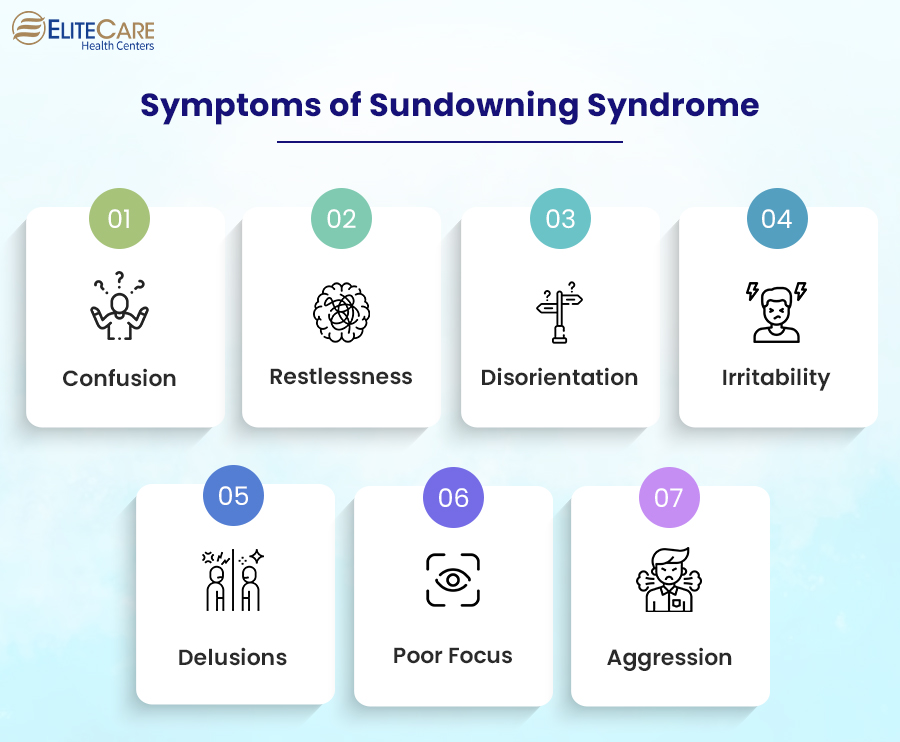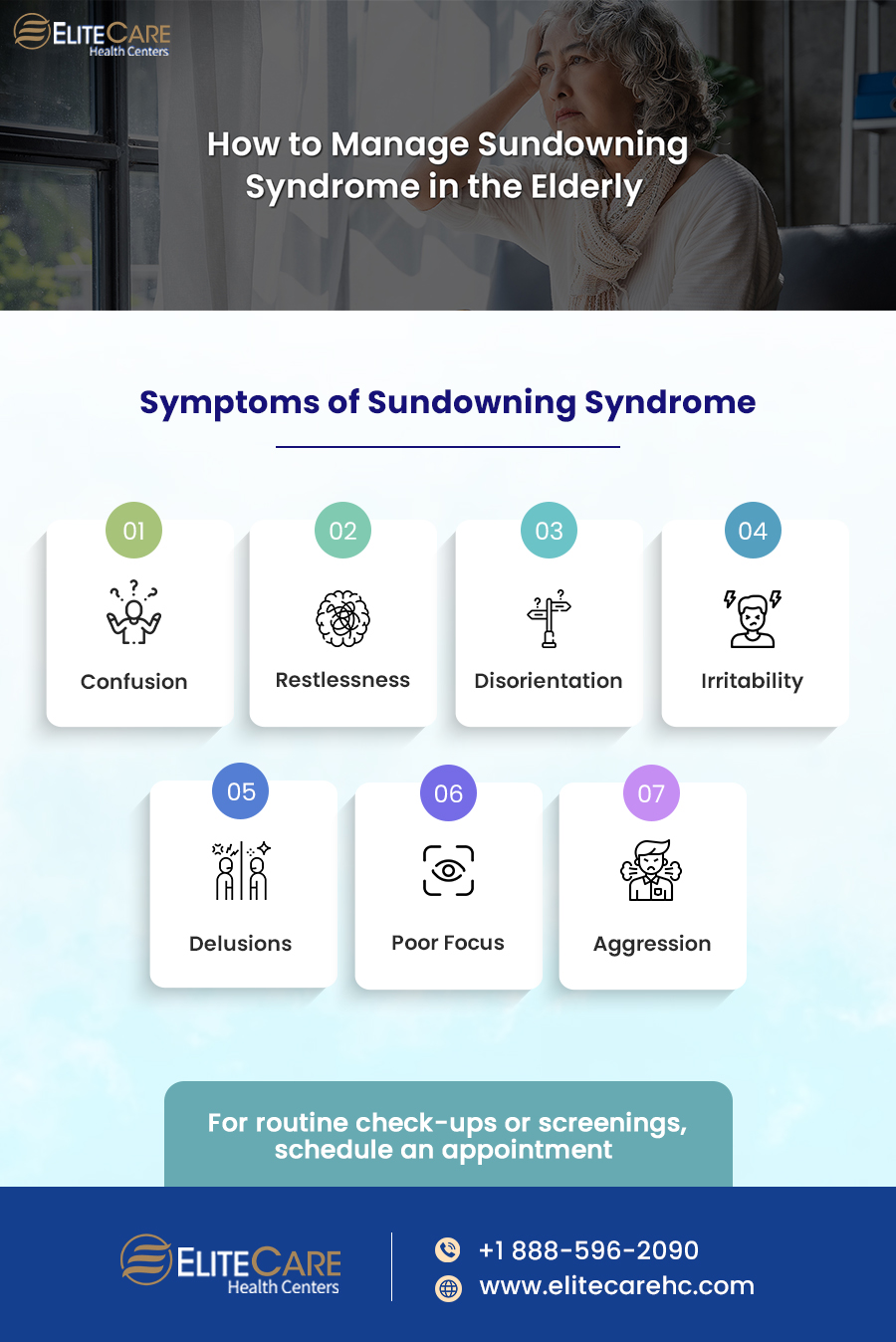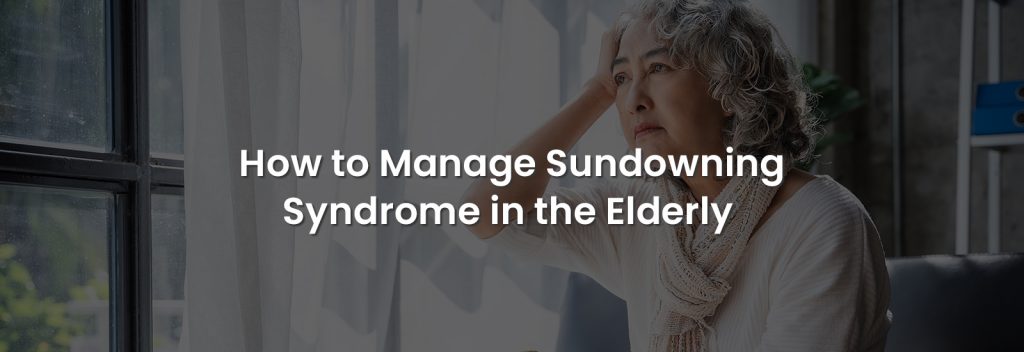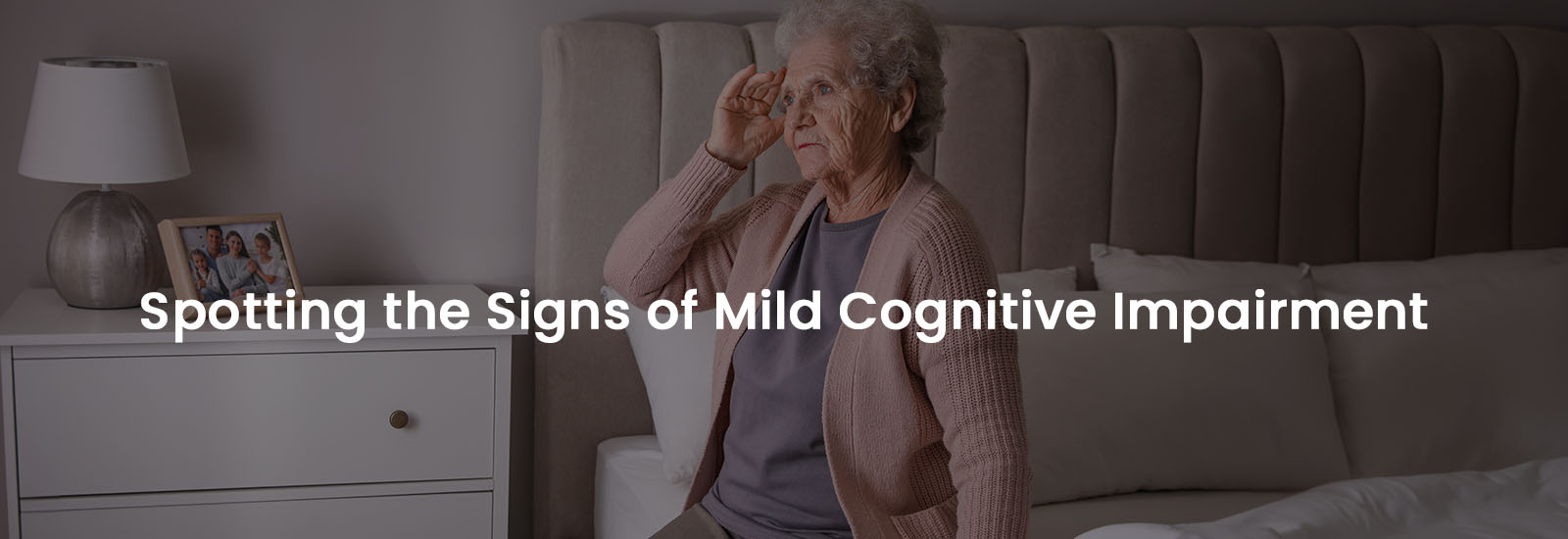
Sundowning Syndrome is a neurological phenomenon that affects older adults suffering from dementia. It is characterized by increased confusion, agitation and aggression late in the day, typically in the late afternoon and early evening. These behaviors often improve with the onset of the night. Approximately 1 in 5 seniors suffering from Alzheimer’s disease present symptoms of sundowning syndrome.
The exact cause of sundowning is not known, but possible contributing factors include fatigue, changes in the environment and overstimulation. Scientists believe that the inner body clock, the area of the brain that signals when one is awake or asleep, stops functioning in people suffering from dementia or Alzheimer’s. This in turn could cause symptoms of sundowning in the elderly.
Read More: 7 Ways to Deal withSleep Apnea?
Symptoms of Sundowning Syndrome

Sundowning syndrome is a serious health concern that can affect the overall well-being of elderly individuals. Recognizing the signs of sundowning syndrome early on can help to identify the issue and provide proper care in a timely manner. This can reduce the risk of injury and falls in the elderly and improve their quality of life.
Common signs and symptoms of sundowning syndrome include:
- Confusion
- Restlessness
- Disorientation
- Increased irritability, especially during late afternoon or early evening
- Hallucinations or delusions
- Difficulty focusing or concentrating
- Unprovoked outbursts or aggression
Which Factors Worsen Sundowning Syndrome in the Elderly?
Lack of mental and physical stimulation
Elderly individuals who are not mentally and physically active throughout the day may experience a higher risk of sundowning. Lack of stimulation causes boredom and frustration, which can lead to an increase in confusion and agitation in the later hours of the day.
Read More: Importance of Mental Health of Seniors
Poor sleeping habits
Poor sleep can exacerbate sundowning syndrome because fatigue can lead to increased confusion and anxiety. Symptoms of sundowning can become more severe when a person is sleep deprived. Poor sleep can also make it difficult for a person to regulate their emotions, making it more difficult to cope with the confusion and anxiety associated with sundowning.
Poor diet and nutrition
Nutrition plays an important role in mental and physical health, and a poor diet can lead to deficiencies in nutrients such as B vitamins, magnesium, and omega-3 fatty acids, which are all important for brain health. If an individual is not getting enough of these nutrients, it could contribute to symptoms such as confusion, agitation, and disorientation, which are all seen in sundowning syndrome.
Loss of daylight
People with dementia and Alzheimer’s disease may become restless, disoriented, and aggressive in the late afternoon, right around the time when the sun is setting. It can last until bedtime. It can be triggered by a decrease in natural daylight and a change in routine at the end of the day.
Decrease in physical activity
Lethargy and exhaustion brought on by a decrease in physical activity might make sundowning symptoms worse.
How to Help Seniors Suffering from Sundowning Syndrome?
There are various strategies to help senior citizens cope with sundowning syndrome. Here are a few:
Create a comfortable and familiar environment
Minimize noise and distractions and provide a calming atmosphere.
Establish a routine and stick to it
Establishing a predictable schedule of activities and meals can help reduce anxiety and confusion in seniors suffering from sundowning syndrome.
Encourage physical activity
Regular physical activity can help regulate circadian rhythms which can help reduce sundowning behaviors. It can help increase the production of hormones such as serotonin and endorphins, which can lead to improved mood and energy levels.
Provide mental stimulation
Engaging seniors in activities that promote cognitive stimulation, such as puzzles, brain games, and reading can significantly reduce symptoms of sundowning.
Reduce stress
Seniors can manage stress better with the help of a supportive environment and through relaxation techniques, such as deep breathing and meditation.
Avoid stimulants
Nicotine, caffeine, soda, and alcohol can all disrupt sleep patterns, especially for people with dementia.
Consult a physician
Physicians can help seniors suffering from sundowning syndrome by providing a comprehensive evaluation to rule out any underlying medical conditions that may be contributing to the symptoms. They can also provide medications to help control agitation and anxiety, as well as cognitive-behavioral therapy to help reduce the intensity and frequency of sundowning episodes.
Conclusion
Symptoms of sundowning syndrome can be very distressing both for the person with dementia and for their caregivers. But establishing a routine, providing comfort and reassurance, and avoiding overly stimulating environments can help curb the adverse effects of sundowning in the elderly. Additionally, lifestyle adjustments, such as increased exposure to natural light during the day and avoiding stimulants such as caffeine or nicotine in the afternoon can also reduce the symptoms of sundowning in the elderly.
Visit the nearest EliteCare clinic for senior care services to help cater to the health needs of your elderly loved ones. EliteCare is one of Florida’s best medical clinics, with a team of highly trained primary care physicians who offer services like venipuncture, immunizations, EKG and more. Visit their website to schedule an appointment today.






